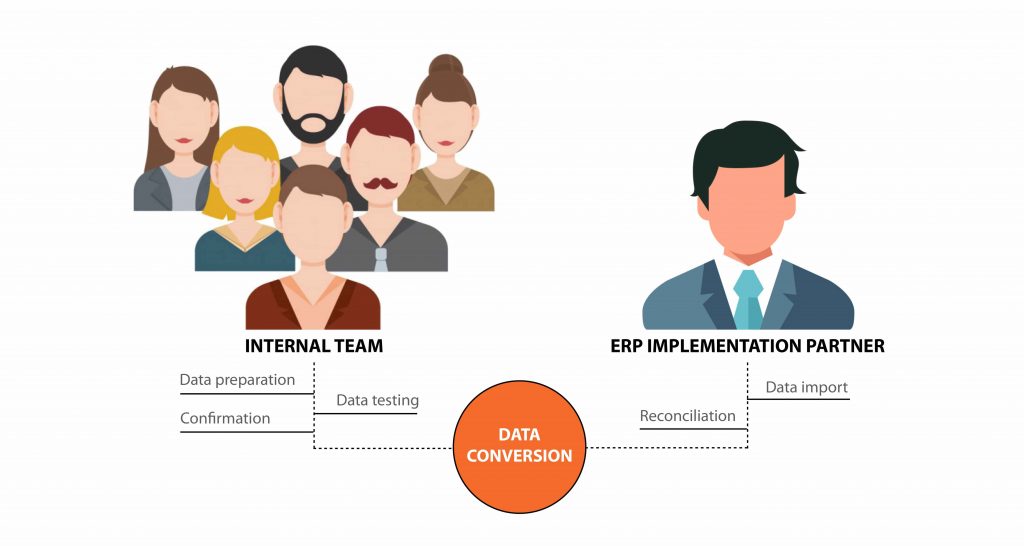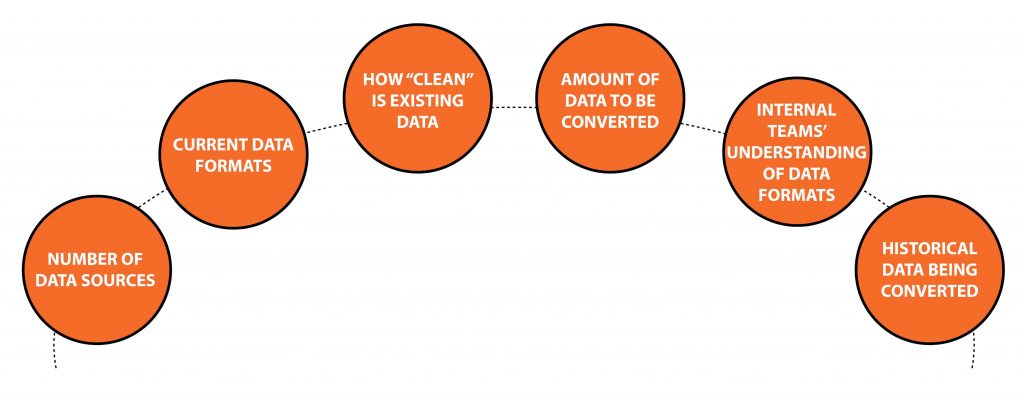If you are considering implementing an ERP solution you might be asking yourself which are the major implementation risk areas that might lead to ERP budget overrun?
After all, you will have a budget and you will want to stick to it!
The board of directors approves a budget for software / cloud, implementation and on-going support. As the project manager or project sponsor you do not want to ask for more budget to complete the ERP project. At the same time you can’t risk to incur in a dramatic ERP implementation failure.
Imagine the scenario – the project scope has not changed but you need an extra 20% of the original budget allocation to complete the job – not a great scenario!
Here is how to avoid it…
Keep an eye out for this 4 high-risk ERP budget overrun areas
There are multiple elements to managing an ERP implementation and the associated implementation budget.
It all starts with having a realistic budget, good internal processes, a solid implementation methodology and the right resources (internal and ERP implementation partner).
Assuming you get all of these elements right, what can go wrong?
Let’s consider the four areas that typically have the highest risk of ERP budget overrun.
Data Conversion
Very often the most under-quoted part of an ERP implementation.
The challenge with data conversion is two fold – the amount of time that your ERP implementation partner has to spend on data import and reconciliation and the amount of time that your internal resource has to spend on data preparation, testing and data “confirmation”.
It’s never as easy as clicking the button and your data appears in the new ERP system.
Items that influence the ERP budget include
- The number of different data sources
- Current data formats
- How “clean” is existing data
- The amount of data to be converted
- How well your internal team understand the data formats
- What, if any, historical data is being converted.
The process should look something like this:
- Decide on the data to be converted (master data, transactional and historical)
- Use data templates to upload data into the new system
- Export data in text format from existing systems
- Perform test uploads
- Do user acceptance testing, check the results, reconcile.
How to avoid ERP Budget overrun due to poor data conversion management
Depending on the outcomes of the test uploads you might perform additional testing before your final go live data conversion. If your business uses inventory then a stock take at go live is recommended.
To keep control of the data conversion budget make sure that you spend some time planning the conversion requirements during the scoping process. Allocate sufficient resource to testing.
Reporting
Yes, most modern ERP solutions offer standard reports and the ability to write your own reports but, you can’t underestimate the importance of specifying your reporting requirements and containing the scope and budget associated with report writing.
It is a great shame that so many ERP implementations fall short when it comes to true value add reporting, dashboards and KPIs.
The reason very often is either:
- A lack of budget allocation to reporting
- Assuming that the standard reports will suffice or
- Not specifying your reporting requirements.
Avoiding ERP budget overrun
In summary, when it comes to reporting make sure that you specify your requirements, define the scope, allocate budget and “ring fence” the spending.
Most importantly do not assume that reports will be standard out the box and don’t assume that you can write your own reports.
I will add that most modern ERP solutions are now incorporating better, easier to use report writing tools that have pre-written data flows to allow users to create their own report selections and configurations. This is making life somewhat easier for reporting.
[RECOMMENDED READ: Measuring ERP Return On Investment: A How To Guide For Business]
Integrations
Looking to integrate your ERP solution with a third party application?
- E-commerce
- billing engine
- In-house solutions
Integration work can overrun substantially if not correctly scoped and managed.
Avoiding ERP Budget overrun
A well defined scope, careful project management and realistic budget and timing expectations will help.
Work closely with your ERP implementation partner upfront to scope in details all the integrations with third party platforms your new ERP system will have.
Development
Very similar to integration requirements, development work can be a source of major frustration for implementation teams and Project Managers.
Think of the steps involved to complete a development inside the ERP application:
- Functional scope
- Blueprint
- Technical scope
- Development
- User acceptance testing
- User training
- Deployment
- Go live
- Go live assistance
- Handover to support.
Development projects should be managed as their own “mini projects” within the broader project framework.
The challenge with regards to development and project overruns is that many development projects are a blank canvas – tell me what you want me to build and I will build it for you. As a result, there is a substantial reliance on getting the scope of works correct.
If not contained within a scope the development team will continue building and developing with no end in sight.
Avoiding ERP Budget overrun
The key to budget containment within a development framework is:
- Careful scope (both functional and technical)
- Comprehensive project management
- Clear communication between client, functional consultants and development team
- Realistic budget and timelines.
Conclusion
Technology is improving.
Cloud, mobility, analytics and other technological advancements dictate that customers want more value for money.
Careful management of an ERP project can deliver on time, real value to your business. Plan, co-ordinate and structure your project to manage all aspects of the implementation with specific attention on the data conversion, integration, development and reporting to guarantee an “on budget and on time” implementation.
Have we missed something?
Let us know in the comments below! What are other areas of your ERP implementation project you are particularly considered about to avoid budget overruns?











